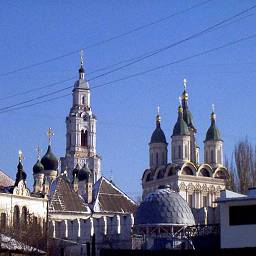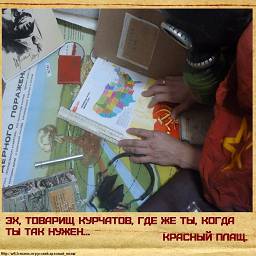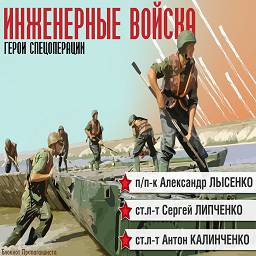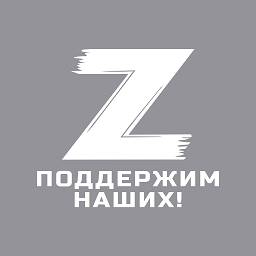Путь:
Quick Links
Language [ ENGLISH РУССКИЙ ]
Search
Подписка и соц. сети
New Materials
- Buy instagram followers 2020-09-09
- FISCAL FEDERALISM THE CANADIAN EXPERIENCE 2020-03-22
- Analysis of differentiation of socio-economic development of the Russian regions 2020-03-22
- Economic development in the Russian regions institutional and macroeconomic problems 2020-03-22
- Russias North Economic Problems of Development 2020-03-22
- Problems of Fiscal Federalism in Russia 2020-03-22
- REGIONAL ASPECTS OF THE FEDERAL ECONOMIC POLICY 2020-03-22
- THE TELEVISIONS PROJECT 2020-03-22
- Journeys into History Through the Future 2020-03-22
- Artists Bring the Computer to Life 2020-03-22
- Culture in the Upcoming Millenium 2020-03-22
- What is a work of telecommunicative art 2020-03-22
- Tatiana Didenko Executive Producer 2020-03-22
- ABC Amber Conversion and Merging Software 2019-12-08
- Human-Rights Journal Finds Survival Hard in New Russia 2018-03-12
Картинка недели
Union maniac
Evaluation section:
0
Union Punk is a wide circle of like-minded people who respect the era of the Soviet Union.
In many cities and countries of the former USSR there were fans who willingly share their memories with the same fans.
Proud of old times, constantly compare reality with the past.


Категории
exclusive interview with the Director-General of IAEA
Date of publication: 2017-12-10 14:26:33Дата модификации: 2017-12-10 14:26:33
Views: 1478
Author: admin
CONTENTS
The issue is opened by an exclusive interview with the Director-General of IAEA Hans Blix given to the President of PIR Center Roland Timerbaev. The main theme of the talk is peaceful use of atomic energy in the future and the role of the Agency in maintenance of the system of nuclear control in connection with the increasing use of nuclear energy in peaceful purposes. Hans Blix stresses that “the increasing usage of nuclear energy in the future is inevitable”. He has a fixed position in the question of the prospective use of the two basic sources of energy: “We should make a choice between fossil fuel and nuclear energy. As far as I understand, there is no doubt that we must apprehend the fossil sources more”. Further, the Director-General defines basic branches of activity at the Agency in this sphere, including: analysis of the influence of different types of energy, elaborating of the legal documents (recommended rules and standards, conventions) aimed at maintaining and strengthening the system of nuclear control, missions of experts and consulting services. Elaboration of the convention for nuclear safety by IAEA, together with the development and realization of the “93+2” program are of special interest. The problems of nuclear control are still the main point of the activities of the Agency. One of the most pressing questions is the level of smoothness and effectiveness of the collaboration between the Agency and individual countries, especially in the field of the most important international inspections. Concerning IAEA, as a main international institution of this system, he says: “The organization should be run to make everybody feel confident about it as an independent, reliable and honest organization, that takes an equal approach”.
The editorial is devoted to the signing on September 24 of the Comprehensive Test Ban Treaty (CTBT) in the headquarters of the UN. Vladimir Orlov determines the significance of the signed CTBT for the system of nuclear non-proliferation in a following way: “Hereafter we can say that humanity has entered a “nuclear era without explosions”. Nowadays not only aerial, above-ground and underground examinations become outlawed, but all the others that nessitate energy evolution. The basic text of the Treaty consists of 17 articles. The Treaty clarifies the following dispute: “Should we practice even occassional explosions?”. The answer is of no doubt: “No”. The Treaty is above all the result of a difficult compromise between the parties of the Treaty, and, more importantly, between the five nuclear states. The article reviews fundamental set forth by states, especially related to peaceful nuclear explosions; the degree of effectiveness of the mechanism coming into force, and the related of India’s position on the future of the CTBT. The author reaches the following conclusion: “The Treaty may remain in a suspended state for some time”. In these circumstances, it is especially important that all nuclear states refrain from all nuclear tests... Russia’s clear-cut position is also important. Russia has declared termination of all nuclear explosions since the Treaty’s signing”.
In October “Yaderny Kontrol” offers their readers a new section: “Letters to the editor”. We have already received and keep on receiving answers-commentaries to the published articles, both that is informative and more importantly debatable. Alexei Yablokov, the President of the Center for Russian Environmental Policy, proceeds with a question raised in the issue #13 (January 1996) - can concerns of security overlap demands for transparency. The article by Alexei Yablokov offers a unique answer to the problem posed in the editor’s page by Vladimir Orlov in the January issue: “Nowadays the answer to this question is definitely affirmative: not only might, but they have overlapped already...”. The principal topic of the article is the case of the retired naval captian Alexander Nikitin. In analyzing the case and the precedent that the case sets, the author concludes: “Every state should have official secrets. And the one who is revealing these secrets is a State prisoner. It is not neccesary that secrecy contradicts transparency on ecological information. There is no overlap betweeb concerns of security and transparency because interests of national security require transparency”.
Dmitry Evstafiev, major research assistant of the PIR Centre, Ph.D., in his article “Non-nuclear deterrence in the post-Soviet era” refers to the under-studied topic of non-nuclear deterrence in multipolar world and its role in providing different aspects of security - political, military, economic, information and so on. “The issue of the specifics surrounding deterrence using conventional arms remains complex, besides being understudied. During the period of bipolar opposition the given problem was considered in connection with the european balance of forces; and the basic approach was the following: a military conflict involving the use of conventional arms will e lead to the utilization of nuclear weapons in a relatively short period of time” - says the author. One of the most important conclusions of his analysis is: “Developing the principles of non-nuclear deterrence is of major military-scientific concern, and resolving this issue will immediately influence the principles of military planning and utilization of Russian military forces”.
“Do Russian materials and German scientific reactor construction plans undermine the efforts for discontinuing the peaceful use of high enriched uranium?” - is a question posed by Annette Schaper from Frankfurt Peace Research Institute. Export of enriched uranium and plutonium (the two materials that offer the easiest path to nuclear weapons) and its application in scientific aims together with the absence of rigid control can seriously damage the non-proliferation regime in general. “International efforts to minimize and put an end to the utilization of enriched uranium and plutonium in peaceful aims have already had positive results. However, now these results are endangered by the new German scientific reactor construction plans and new trade agreements between the European Union and Russia”.
The section “From Abroad” offers an article by Arjun Mahijani “The CTBT and five nuclear states: the problems remain”. In the article the President of the Institute for Energy and Environmental Research (Takoma Park, MD) points out the danger of possible debilitation of the CTBT’s influence, and the non-proliferation regime in general due to researchers’ nuclear explosions, that can be organized by the USA, Russia, France, Great Britain and China. After an analysis of states’ programs in this sphere the author concludes: “Enormous financial and technical advantages of the USA, France and Great Britain in combination with secret agreements can generate incentives capable of forcing China and Russia into tests in order to compensate for the lack of modern facilities, as well as possible action that will hold back progress on disarmament in other fields”.
Evaluation of the document:
0
Article description: The issue is opened by an exclusive interview with the Director-General of IAEA Hans Blix given to the President of PIR Center Roland Timerbaev.
Albums:
Other articles of the section: Union maniac
Previous To all who can help Express ChronicleNextYaderny Kontrol No 23 Summary
Nested sections



_косплей_совьет_панк.jpg)

_стенгазета_союз-маньяка.jpg)
_юмор_в_стиле_союз-маньяк.jpg)


